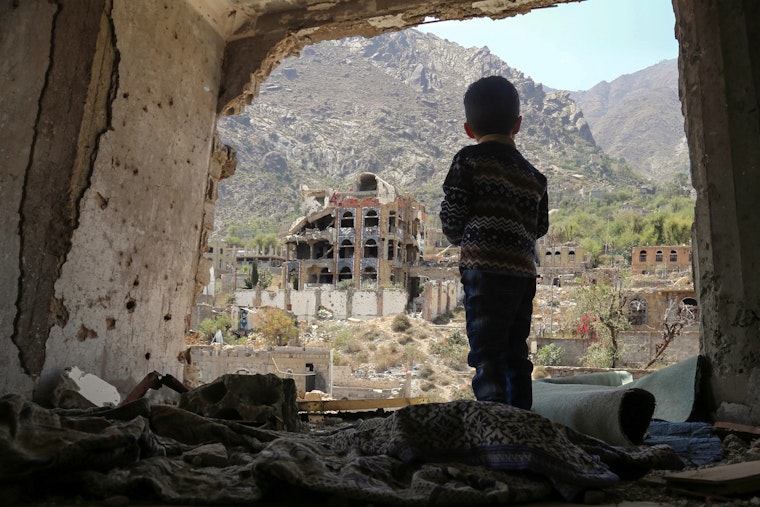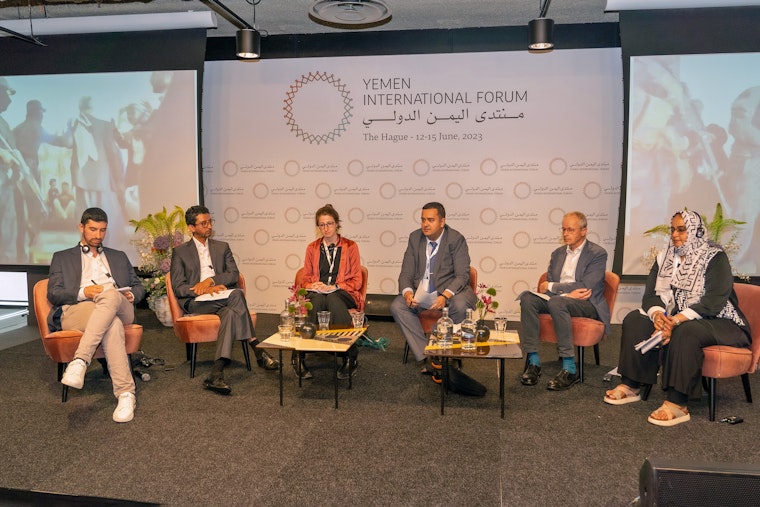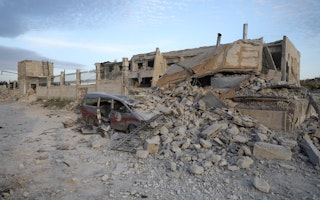Breaking the Cycle: Towards a Victim-Centered Justice in Yemen
By Rana Cheaito

On April 9, Houthi and Saudi officials met in Sana'a, Yemen to discuss an end to the nine-year catastrophic war in Yemen. The peace talks, held under the auspices of a mediated peace process, might seem like a uniquely positive development. But civil society has described these talks as “dangerously exclusive” because they disregard vital stakeholders in Yemeni society—notably victims of atrocities. Without consulting victims, addressing their grievances, and making sure their justice demands are met, these talks would likely result in a temporary de-escalation of armed conflict—but would miss an opportunity to meaningfully advance a just peace.
Hopes for restorative transitional justice remain strained. Yemen’s long history of unrest, and the cycles of violence it has endured, attest to the need for victim-centered justice as a necessary pathway to sustainable and inclusive peace. Through one failed transition after another, Yemen’s political system continues to dismiss the root causes of conflict and the myriad of grievances that afflict the nation’s people.
Victim-centered justice refers to a pathway to justice that is determined by and is responsive to the grievances of those most affected by rights violations. Under this framework, justice is pursued “from the base”—whereby victims are significant agents in steering the process to be responsive to their needs and demands. It constitutes a shift in the elite-dominated political narrative towards a community-informed one.
War in Yemen has inflicted grave human rights violations on much of its population—violations which have fallen especially hard on women, children, and religious and racial minorities. The conflict has affected people with disabilities, missing people, displaced people, human rights defenders, public sector workers, and Yemenis across the board. It has also heightened entrenched tensions and divisions.
Yemeni civil society and victims have been calling for transitional justice for years now, since long before the current conflict. But they have been ignored. The elites, alarmed by demands for accountability, have cited national stability as an excuse for tuning out calls for transitional justice. Yemenis have been essentially asked to choose between peace and justice. Yet civil society has persisted—through coalition-building, advocacy, dialogue, and everyday peace-building—in lighting the path toward justice.

During the 2023 Yemen International Forum in The Hague—the largest annual conference for Yemeni dialogue, organized by Open Society partner and grantee Sana’a Centre for Strategic Studies—victim-centered transitional justice was a prominent topic of discussion among political leaders, journalists, civil society, and community leaders from all over the country. The conversation reflected the urgency of recentering peace talks around victims who bear the brunt of war. In his keynote, UN Special Envoy for Yemen H.E. Hans Grundberg echoed the importance of “a solution that meets the aspirations voiced by Yemenis for over a decade now.”
In July 2023, the Yemen Justice Network, a coalition of Open Society partners, developed and launched the Yemen Declaration for Justice and Reconciliation. Signed by several dozen Yemeni organizations, the Declaration sets out principles and priorities for post-conflict justice as defined by Yemenis themselves. Notably, the Declaration demands a victim-centered approach, countering the current narrative and advocating for an inclusive, sustainable, and just peace in Yemen. It “affirm(s) that the voice, agency, and needs of victims and survivors are critical in any justice process.” The declaration forges a collective civil society vision that seeks to inform all the national and international stakeholders involved in the peace process. It is a point of departure for developing the means to prevent future cycles of violence. And most importantly, it represents a far more inclusive peace process.
To build on this progress, the Office of The Special Envoy of The Secretary-General for Yemen and other mediators must ensure that the peace talks directly involve local Yemeni communities. The political process must reflect the demands of Yemeni victims by addressing their grievances. And the international community, including states, donors, and international civil society, must deploy their resources and expertise in expanding and enriching avenues for supporting Yemeni civil society and victim associations. Then, and only then can the world begin to meet the conditions needed for a credible peace process.
Rana Cheaito is an intern with the Rights and Accountability team of Open Society Foundations–Middle East and North Africa.


